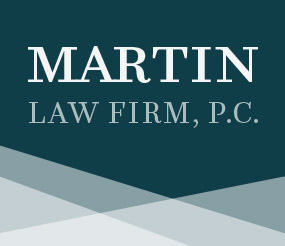Federal Stark Law
Schedule a Case Evaluation Today

Healthcare providers are subject to a set of complex fraud and abuse laws, including the federal Stark Law. The Stark Law is broad in scope and is regularly expanded, making compliance a challenge for many healthcare providers. There are very costly consequences for non-compliance with federal self-referral regulations such as Stark. Healthcare providers should carefully plan, structure, and analyze their financial relationships and should not hesitate to contact an experienced healthcare attorney at The Martin Law Firm for assistance in determining compliance with the Stark Law.
What is the Stark Law?
The physician self-referral law, better known as the “Stark Law,” refers to a complex set of federal regulations that essentially prohibit healthcare providers from referring certain services payable by federal healthcare programs to any entity with which the healthcare provider and/or an immediate family member has a financial relationship, unless an exception is met.
Since its initial publication in 1989, the Stark Law has undergone vast expansion. Today, the Stark Law applies to a large number of services (called “Designated Health Services” or “DHS”) as well as virtually any financial relationship between a healthcare provider and the entity performing or billing for the DHS.
Who is Subject to the Stark Law?
The Stark Law applies to healthcare providers, including: doctors of medicine or osteopathy, doctors of dental surgery or dental medicine, podiatrists, optometrists, and chiropractors. The self-referral prohibition also applies to any immediate family members of the healthcare provider.
Designated Health Services (DHS) under Stark
The Stark Law applies to certain services, including some types of equipment, supplies, and drugs, which are called “Designated Health Services”, or “DHS.” The following items or services are DHS:
- Clinical laboratory services
- Physical therapy services
- Occupational therapy services
- Outpatient speech-language pathology services
- Radiology and certain other imaging services
- Radiation therapy services and supplies
- Durable medical equipment and supplies
- Parenteral and enteral nutrients, equipment, and supplies
- Prosthetics, orthotics, and prosthetic devices and supplies
- Home health services
- Outpatient prescription drugs
- Inpatient and outpatient hospital services
Exceptions to Stark
CMS has carved out several exceptions to the Stark Law that are designed to accommodate legitimate financial relationships, so long as certain conditions are met. These exceptions provide healthcare providers with some flexibility and include: personal services, office space and equipment rental, group practice arrangements, physician recruitment, and fair market value compensation arrangements.
Stark Law exceptions apply only in limited circumstances. If any of the required elements to the exception are lacking, the financial relationship will be deemed a violation. Exceptions to Stark generally require that the agreement between a provider of DHS and the referral source be in writing. It is extremely important for healthcare providers to seek assistance from an experienced healthcare attorney to analyze and understand every aspect of the relationships in question.
Penalties for Non-Compliance
If no exception exists, severe penalties for violation may be imposed. The Stark Law is particularly concerning for healthcare providers because intent is not a required element for overpayment. Penalties for violation of Stark include:
- Denial of payment
- Refund of payment
- $15,000 per service civil monetary penalty
- $100,000 civil monetary penalty for each arrangement considered to be a circumvention scheme
PA Stark Law Attorneys | The Martin Law Firm
The experienced attorneys at The Martin Law Firm are well-versed in the complex regulations that govern healthcare providers, including the federal Stark Law. Our skilled healthcare attorneys can analyze your financial relationships under Stark to determine whether your relationships constitute “referrals”, whether a “financial relationship” exists, and whether an exception is available to you. If there is an available exception, our attorneys can help you to structure your contracts, procedures, and policies to comply with Stark. Contact The Martin Law Firm at (215) 646-3980 to schedule a free Stark Law consultation with our experienced healthcare attorneys.
Please call (215) 646-3980 to schedule an appointment.
Practice Areas
Our legal team provides individualized legal solutions for our clients by offering high quality legal counsel and representation in diverse areas of law. Our attorneys regularly represent clients throughout Southeast Pennsylvania, including Montgomery County, Bucks County, Chester County, Delaware County, and Philadelphia County.
Tell Us About Your Case
Please submit the form and an attorney will contact you shortly.
Please indicate how you would like to be contacted in the form.
